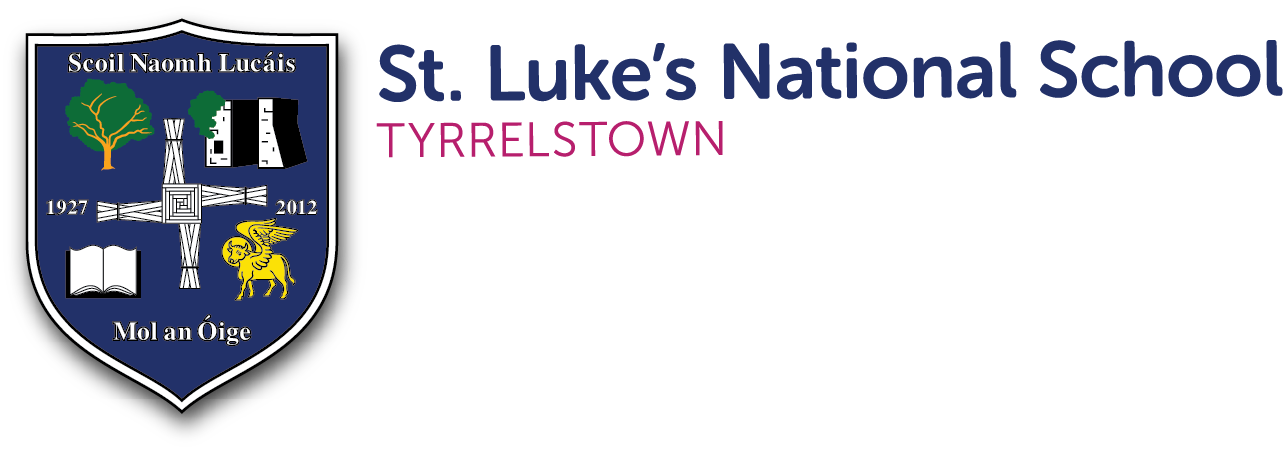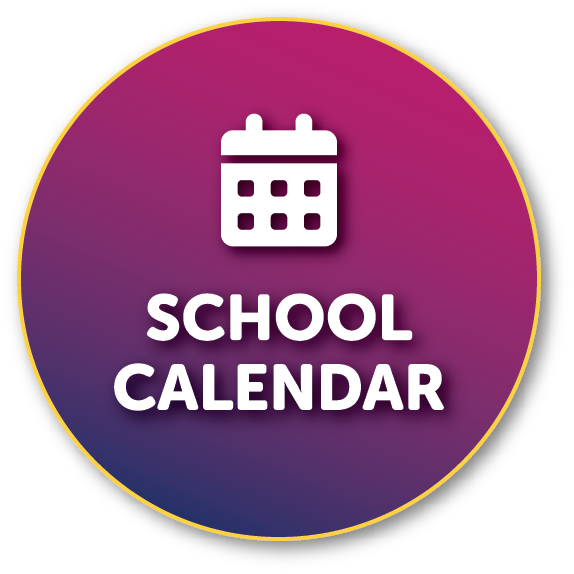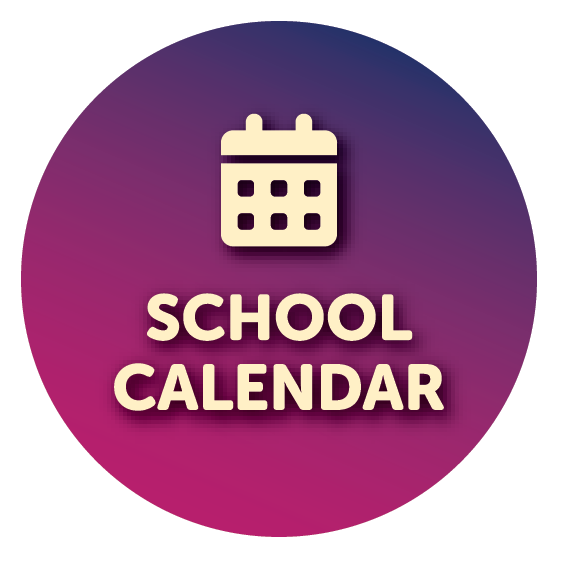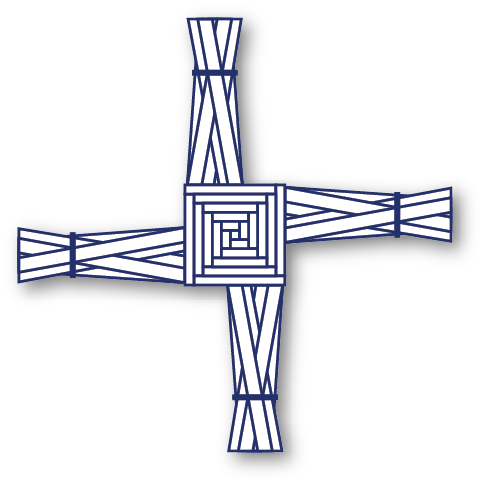Junior Infants
The first year of school focuses on helping children adjust to their new environment, build relationships, and develop essential skills. Key areas of emphasis include:
- Social Integration: Encouraging children to relate to others, make friends, and feel happy in their new setting.
- Physical Development: Enhancing physical coordination, particularly of hands and fingers.
- Concentration and Listening: Extending attention spans and promoting attentive listening.
- Learning Through Play: Utilising play as an enjoyable and effective learning method.
- Cooperation: Fostering cooperation with teachers and peers.
- Independence and Collaboration: Encouraging the completion of tasks both independently and collaboratively, and promoting sharing and teamwork.
- Familiarity with Rules and Routines: Introducing classroom and school rules and routines.
Recognising that children’s progress rates can vary significantly, we strive to provide opportunities for each child to advance at their own pace, or as close to it as possible.
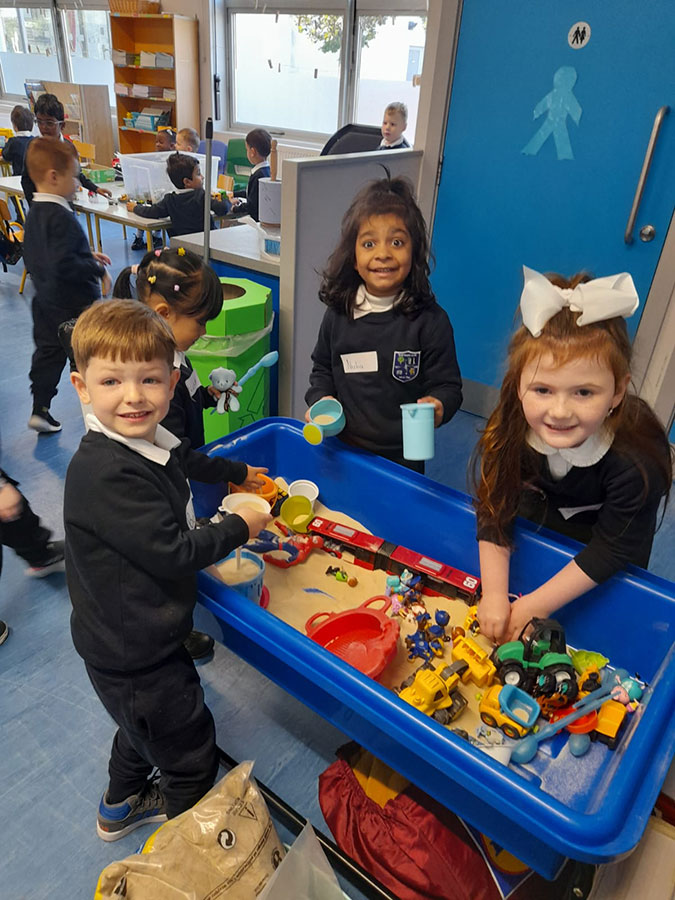
To support your child’s transition into school, consider the following steps:
- Foster Independence: Encourage your child to develop physical, emotional, and social independence. Provide opportunities for them to play with peers of a similar age to enhance these skills. Encourage and practise putting on and taking off their coat, opening and closing their new lunchbox, drinks bottle, and schoolbag.
- Discuss School Positively: Talk about school as an exciting place where they will make new friends and learn interesting things. Maintain a positive tone and avoid using school or teachers as threats.
- Visit the Classroom: In June, you’ll have the chance to visit a Junior Infant classroom with your child. This visit can help familiarise them with the environment and reduce first-day anxieties. Detailed information about starting school, start times, and dates will be provided at this meeting.
By taking these steps, you can help your child feel more comfortable and enthusiastic about starting school.
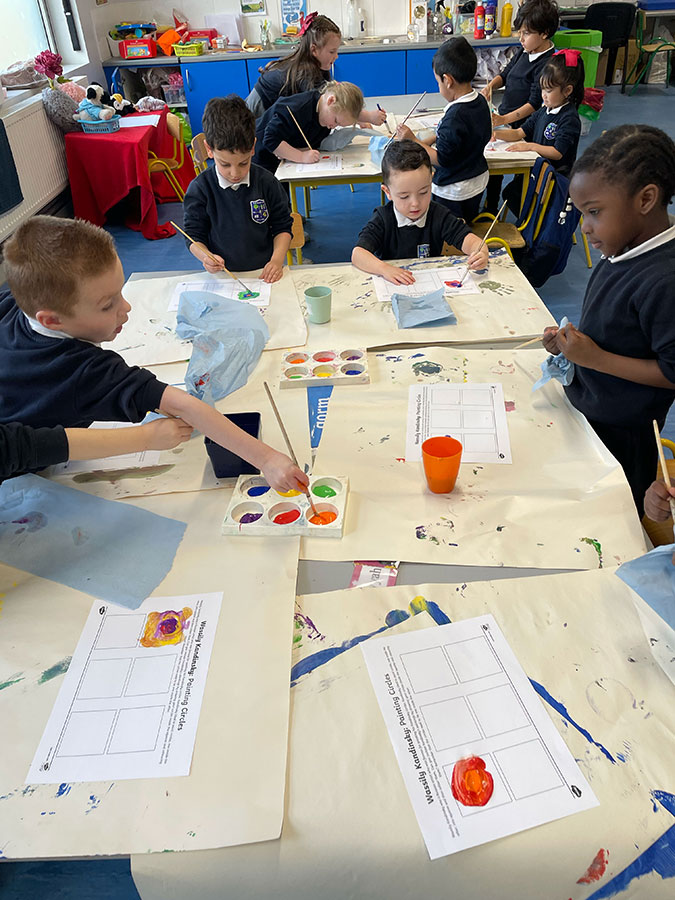
Preparing for your child’s first day of school is a significant step. To ensure a smooth transition, consider the following guidelines:
- Appropriate Attire: Dress your child in their uniform or tracksuit to ensure comfort and readiness for activities.
- Schoolbag Essentials: Provide a schoolbag spacious enough to accommodate an A4 folder for homework, lunchbox, and drink.
- Label Belongings: Clearly label all personal items—such as jumpers, coats, lunchboxes, and school bags—to prevent mix-ups.
- Classroom Introduction: Accompany your child to the classroom to meet the teacher. Be aware that a second teacher may also be present on the first day. Each child will be given a name badge to wear, and there will be toys and activities on the tables to play with; they will be busy.
- Settling In: Ensure your child feels comfortable and settled, but avoid lingering unnecessarily to help them adjust to the new environment.
- Punctuality: Collect your child promptly at the designated time, as punctuality is crucial.
- Special Timetable: Note that a special timetable will be in effect initially to help your child acclimatise to the school’s routines.
- Parent Participation: From the second day onwards, children should line up on the appropriate line.
By following these steps, you can help your child start their school journey with confidence and ease.
Junior Infants will have a short day for the first two weeks of school. This is a great opportunity for the children and the class teacher to get to know one another, while also easing the children into school life.
Preparation for Junior Infants
Before beginning school:
- Be positive and calm in your approach towards school.
- Talk about school in conversation.
- Encourage your child to do small practical tasks by themselves.
- Involve them in the preparation (choose lunch box/bag).
- Practice simple routines.
If you have any other information regarding your child’s needs or medical care, please inform the school as soon as possible.
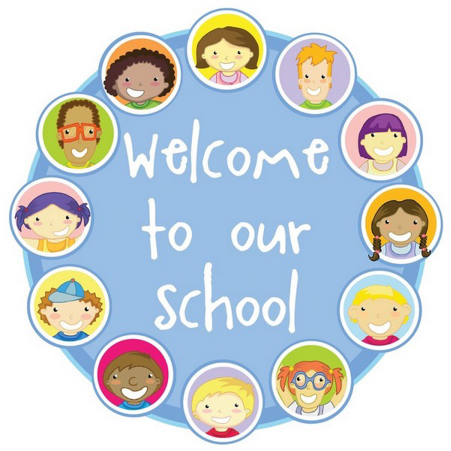
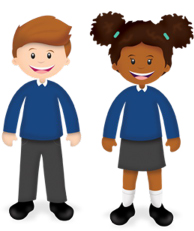
School Uniform
- Children wear a navy jumper and grey trousers / pinafore / skirt with a white shirt or polo shirt or a navy tracksuit.
- Children should wear a navy tracksuit on PE days.
- School crests are available from the school office to sew onto navy jumpers.
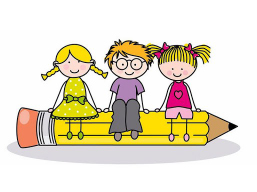
The Basics
- School begins at 9am. The school gates are open from 8.50am.
- All items belonging to your child must have their name on it.
- Your child will be given an A4 homework folder if you want to keep this in mind when buying a bag.
- There is no need to buy anything else for your child to bring to school. The class teacher will have your child’s books, pencils, crayons, etc. These items are covered as part of the booklist.
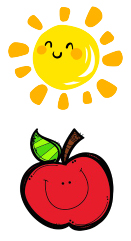
Your child’s first day!
- You will be notified what time school will start and finish on the first day of school. This will be a short day to help your child become familiar with the school.
- Have everything ready the night before (uniform, snack, shoes, etc.)
- Take pictures at home before coming to school.
- If you are feeling upset or nervous try not to let it show.
- Engage your child with other children in the class.
- Let your child know you will collect them later and wave goodbye.
- If your child is upset try distracting them with a toy or friends. Teachers will be on hand to support your child.
Lunches
Children have 2 breaks a day. One 10 minute break and one 30 minute break. Children usually eat before or after their yard breaks.
- There is a healthy lunch policy in the school. This means no sweets, chocolate, crisps, etc.
- Children should bring a small snack for little break and will be provided with a hot meal for big break. Information on this will be given at a later date.
- Children should be able to open their own lunch box, yoghurt and drinks or anything else they bring.
- Children should not be given nuts as part of their lunches as there are children in the school with allergies. This includes nuts and products containing nuts for example peanut butter and Nutella.
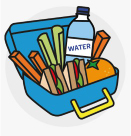
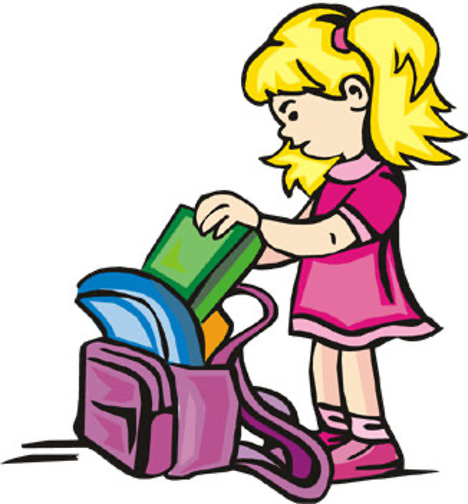
Practice
Children should practice these before coming to school:
- Putting on and off their coat/hat/gloves/jumper.
- Opening and closing their school bag and lunch box.
- Tidying up after themselves.
- Taking turns.
- Toilet hygiene (Children must be fully toilet trained before starting in September).
Self-Care
- Children should be able to put on, close, take off and hang up their own coat, hat, scarf and gloves and any other item of clothing.
- Children should be able to tie their own shoe laces or open and close Velcro shoes.
- Children should only wear belts on their trousers if they can undo them themselves. Elasticated waists on trousers are most suitable.
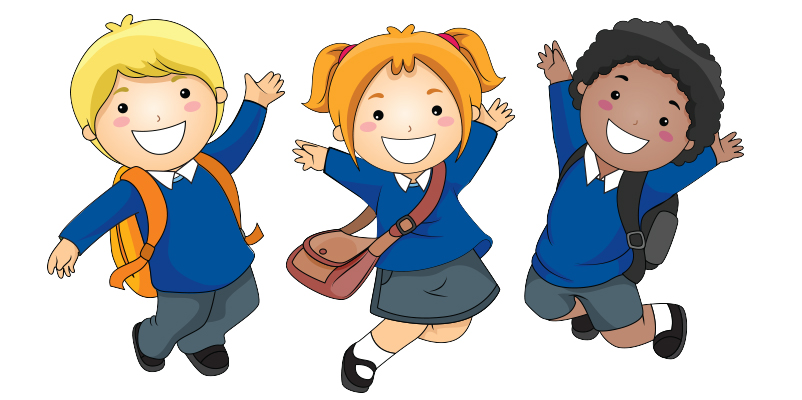
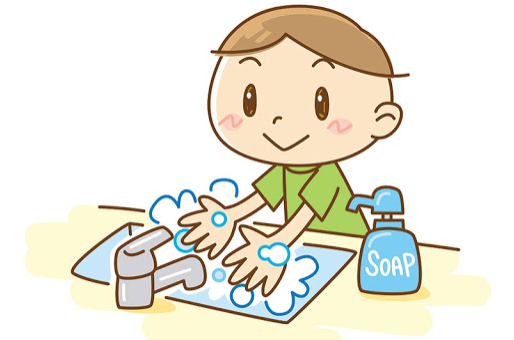
Toilet Hygiene
- Children should be able to use the toilet independently.
- We ask that children bring their own hand towel for drying their hands.
- Remind children to flush the toilet and wash their hands before leaving the toilet.
- In the case of a toilet accident, the school has spare clothes. In some cases we will contact you if you child requires extra attention.
Junior Infants Curriculum
Junior Infants have a busy day. These are some of the programmes we use:
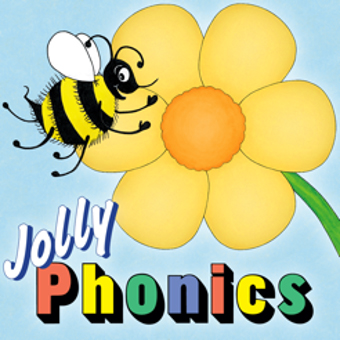
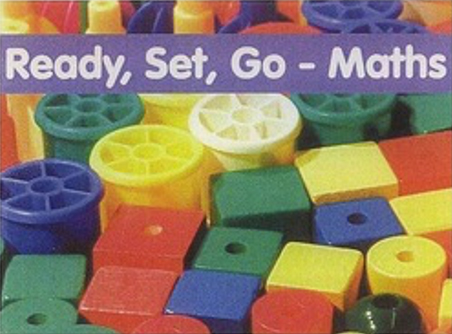
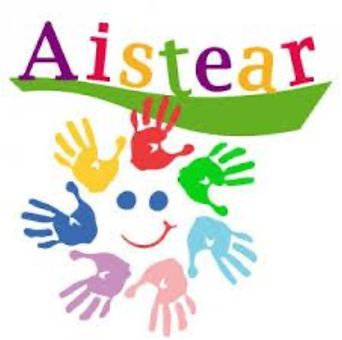
Jolly Phonics
- We use the Jolly Phonics programme to teach letter sounds.
- It uses a multi-sensory approach to learning phonics.
- The children learn their sounds through songs, actions, games, visuals and stories.
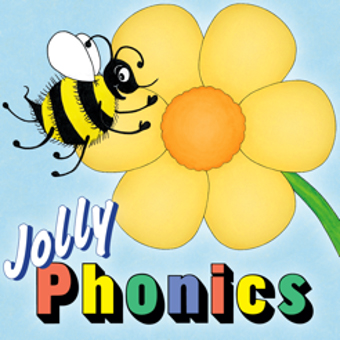
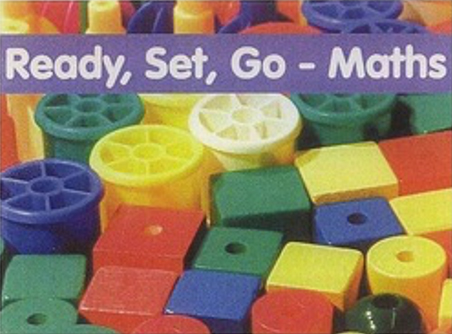
Ready, Set, Go – Maths
- We use the Folens Maths programme & Ready Set Go Maths programme.
- The focus for Ready, Set, Go is on hands on activities and developing the area of ‘Number’.
- Children work on maths activities in groups with the class teacher and learning support staff.
Aistear
- Aistear-meaning ‘Journey’ is the curriculum framework for 0-6 year olds in Ireland.
- Places a huge emphasis on play as ‘much of children’s early learning and development takes place through play and hands on experiences.’
- Aistear engages children in 45mins-60mins of learning through play each day.
- It focuses on developing children’s oral language-discussion before during and after play
- Children play in groups and do a different activity every week.
- New theme explored every month.
- Stations include pretend play, physical play, creative play, language play and games with rules.
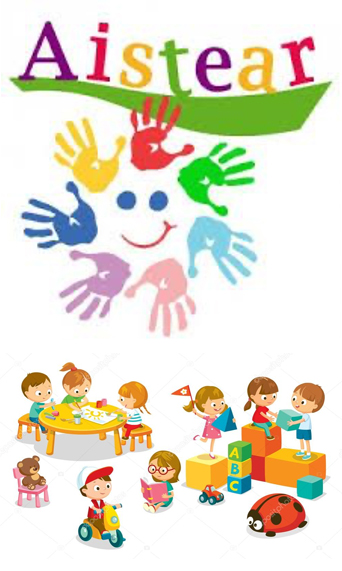
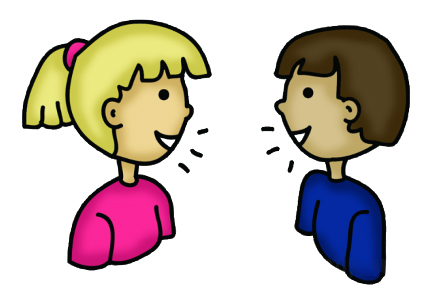
Oral Language
- Oral language (speaking and listening) is the most important area of infant curriculum.
- If children can’t talk about a topic, then they can’t read or write about it.
- Encourage conversation with your child (ask about their day, weather, what they would like to play, etc.).
- Play games to encourage your child to talk e.g. Simon Says, Headbands, I Spy.
Homework
- Children will get a little bit of homework each day.
- Engage with your child doing their work.
- Homework folders should be returned on Friday to allow the teacher to get the folder ready for the following week.
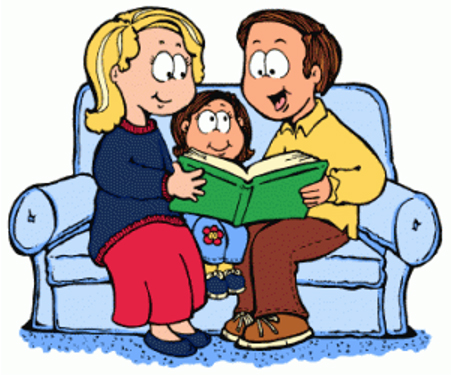
Behaviour Management
- We reinforce positive behaviour (notice and praise desired behaviours).
- We reward positive behaviour (stickers, certificates, verbal praise, given to children).
- 2We give individual and group rewards (student of the week, class of the week).
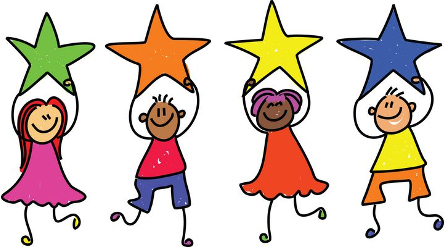
Simple Class Rules
- Kind hands
- Kind feet
- Kind words
- Hand up to talk
- Look at and listen to whoever is talking
Upon enrollment parent’s signed a code of behavior form. Please familiarise yourself with this again before August/September. A copy can be found on our school website: www.stlukesns.ie.
 Roll Number: 16675V
Roll Number: 16675V 

 Hollywood Road, Tyrrelstown, Dublin 15, D15 CH64
Hollywood Road, Tyrrelstown, Dublin 15, D15 CH64 

